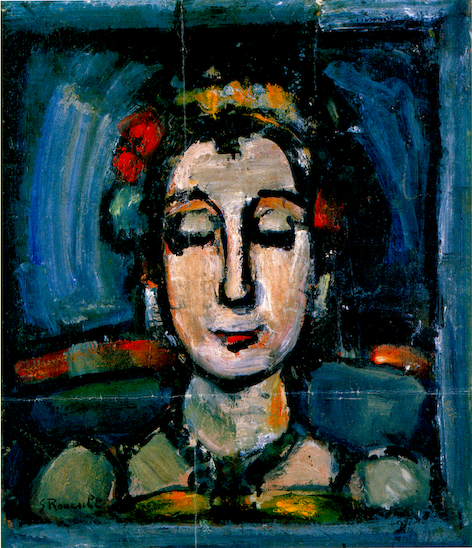
アルゼンチンにおけるユダヤ人の音楽文化
Jewish music in Argentina

The cover of Simja Dujov’s 2008 album
“Santificaras las Fiestas,
which combines klezmer and Latin American beats
Jews
in Argentina, 1860-2015, by AMIA Jewish Community in Argentina.
"The history of the Jews in Argentina goes back to the early sixteenth centuries, following the Jewish expulsion from Spain. Sephardi Jews fleeing persecution immigrated with explorers and colonists to settle in what is now Argentina.[2] In addition, many of the Portuguese traders in the Viceroyalty of the Río de la Plata were Jewish. An organized Jewish community, however, did not develop until after Argentina gained independence from Spain in 1816. By mid-century, Jews from France and other parts of Western Europe, fleeing the social and economic disruptions of revolutions, began to settle in Argentina.[2][3]/ Reflecting the composition of the later immigration waves, the current Jewish population is 80% Ashkenazi; while Sephardi and Mizrahi are a minority.[4] Argentina has the largest Jewish population of any country in Latin America, although numerous Jews left during the 1970s and 1980s to escape the repression of the military junta, emigrating to Israel, West Europe (especially Spain), and North America.[2]/ The Jewish population in Argentina is the largest in Latin America, the third largest in the Americas, and the world's seventh largest outside Israel./ During a major emigration wave in the 2000s, more than 10,000 Argentine Jews settled in Israel." - #Wiki.
「アルゼンチンのユダヤ人の歴史は、スペインからの ユダヤ人追放後の16世紀初頭にさかのぼる。迫害から逃れたセファルディ・ユダヤ人は、探検家や入植者と共に現在のアルゼンチンに移住した[2]。また、 リオ・デ・ラ・プラタ総督領のポルトガル人商人の多くはユダヤ人であった。しかし、組織化されたユダヤ人社会が発展したのは、1816年にアルゼンチンが スペインから独立した後のことである。19世紀半ばまでに、革命による社会的・経済的混乱から逃れてフランスや西ヨーロッパの他の地域からユダヤ人がアル ゼンチンに定住し始めた[2][3]/後の移民の波の構成を反映して、現在のユダヤ人人口は80%がアシュケナージ系で、セファルディ系とミズラヒ系(= ミズラヒム(Mizrachim, ヘブライ語: מזרחים)は主に中東・カフカス以東に住むユダヤ人)は少数派である。 [しかし、1970年代から1980年代にかけて、軍事政権の弾圧から逃れるために多くのユダヤ人がイスラエル、西ヨーロッパ(特にスペイン)、北米に移 住した[2]/アルゼンチンのユダヤ人人口はラテンアメリカで最大、アメリカ大陸で第3位、イスラエル以外では世界第7位である。」
☆イディッシュ文化
アシュケナージ・ユダヤ人の母語のイディシュ語 (ייִדיש, Jiddisch, Yiddish, )は、ナチスドイツからは東ヨーロッパの言語共同体の言語からは排除され(ホロコーストにより激減)、(戦後の)イスラエルではヘブライ語優遇のために抑 圧され、正統派コミュニティを除いて、日々のやりとりの言語としては消滅しつつあると言われている(アメリカ合衆国が現在では一番言語人口が多く300万 人以上と言われる)。しかしながら、ディアスポラを自覚するユダヤ文化の新しい創造(Shandler 2006:23)のなかで、第二のライフを得たようにも 思える。シャンドラーは言う、ポストヴァナキューラ、母語がもた らす流暢な固有語のモデルとは異なる別の言語利用の可能性をもち、(ある意味で)解放的な概念である。リンク(ヴァーチャル・ユダヤ事典)イディシュ文化 が育んだ音楽ジャンルとしてクレズマー()がある。The Klezmaticsは1986年の小楽団で世界的なクレズマー流行をもたらした。また、ジャズ・サックス奏者で作曲家のジョン・ゾーンは、自己のユダヤ 文化のルーツに回帰しつつマサダグループを組織してユダヤ的伝統を取り込んでいる。
「プロジェクト名(マサダ参照)の歴史的連想、楽曲 のヘブライ語タイトル、クレズマー音楽を彷彿とさせるメロディ・テーマと音楽構造、関連アルバムのジャケットに描かれたユダヤのイメージを考えると、ゾー ンはマサダの曲集とグループで自身のユダヤ的ルーツを探求していたことは明らかだ。彼はこう語っている: 「マサダでのアイデアは、一種の急進的なユダヤ音楽、伝統的なものを別のアレンジにしたものではない新しいユダヤ音楽、現代のユダヤ人のための音楽を作る ことだ。オーネット・コールマンとユダヤ音階を一緒にすることです」[https://en.wikipedia.org/wiki/Masada_(バ ンド)] .
ジョン・ゾーン自身による説明:
"The project for Masada
was to create something positive in the Jewish tradition something that
maybe takes the idea of Jewish music into the 21st century the way jazz
developed from the teens and 1920s into the '40s, the '50s, the '60s
and on ... My initial idea was to write a hundred tunes. And then I
ended up writing over 200 for the first book and then performed it
countless time for years.[https://en.wikipedia.org/wiki/John_Zorn]"
マサダのプロジェクトは、ユダヤの伝統の中で何かポ ジティブなものを創り出すことだった......ジャズが10代、1920年代から40年代、50年代、60年代と発展していったように、ユダヤ音楽のア イデアを21世紀に持っていくような......。最初は100曲書くつもりだった。そして結局、最初の本のために200曲以上書いて、何年もの間、数え 切れないほど演奏したんだ。
☆SIMJA DUJOV
Cachorrita - Simja Dujov - audio track
SIMJA DUJOV - Low Fi -
Video Clip - gypsy cumbia & cuarteto surf
| Jewish-Argentinian’s
musical mashup makes klezmer with a Latin beat, When not twirling his
Dali mustache, artist Simja Dujov reinvigorates Buenos Aires Jewry
through new musical anchors for traditional religious rituals, BUENOS AIRES – With his dreadlocks, signature Salvador Dali mustache and huge Star of David necklace, Simja Dujov can be easily spotted on the streets of the Argentinian capital’s artsy Palermo neighborhood. And so can his music, which is a unique blend of klezmer and Latin beats. In a recent interview with The Times of Israel, the 33-year-old composer, musician and DJ says combining Jewish traditions with distinctly Latin flavors is a growing trend, and he is among the next generation that is leading the way. “It’s kind of like what has happened with African American and Jewish cultures, the blending and the influencing,” says Dujov. “We’re going to be the next big blend – Latino with Jewish [traditions].” |
ユ
ダヤ系アルゼンチン人によるラテンビートとクレズマー音楽のマッシュアップ、ダリの口ひげをクルクル回している時以外は、伝統的な宗教儀式
に新しい音楽を加えることでブエノスアイレスのユダヤ人を元気づけるアーティスト、シ
ムジャ・ドゥジョフ。 ブエノスアイレス-ドレッドヘア、サルバドール・ダリの特徴的な口ひげ、そして巨大なダビデの星のネックレスをつけたシムジャ・ドゥジョフは、アルゼンチ ンの首都の芸術的なパレルモ地区の路上で簡単に見つけることができる。そして、クレズマーとラテン・ビートを独自にブレンドした彼の音楽もそうだ。 33歳の作曲家、ミュージシャン、DJである彼は、『タイムズ・オブ・イスラエル』紙との最近のインタビューで、ユダヤ教の伝統と独特のラテン・テイスト を融合させることは成長しつつあるトレンドであり、彼はその道をリードする次世代の一人だと語っている。 「アフリカ系アメリカ人とユダヤ人の文化に起こったようなものです。「ラテン系とユダヤ系の(伝統的な)融合です」。 |
| Dujov and his band play a
hard-to-describe mix of klezmer, local cuarteto, Latin cumbia, Balkan
music, dance, pop and several other genres. According to Dujov, his
musical mashup is visceral rather than cerebral. He says he does not
sit down and piece together elements in a technical manner, but rather
composes first and thinks later. Simja Dujov (Courtesy) Simja Dujov (Courtesy) “I don’t say to myself, ‘I will take this house music riff and tack on a Shabbat song.’ Instead, I want to share a germ of an idea, a message – I’m sad about breaking up with someone or I’m happy that the world is going to an amazing place — so I start writing and playing music and add a beat and the base, and that’s how it gets created.” |
ドゥジョフと彼のバンドは、クレズマー、地元のクアルテート、ラテン・
クンビア、バルカン音楽、ダンス、ポップス、その他いくつかのジャンルをミックスした、表現しにくい音楽を演奏する。ドゥジョフによれば、彼の音楽のマッ
シュアップは頭脳的というより、むしろ直感的なものだという。座って技術的に要素を組み合わせるのではなく、まず作曲し、後で考えるのだという。 シムヤ・ドゥヨフ(提供) シムヤ・ドゥヨフ(提供) "このハウス・ミュージックのリフをシャバットの歌に付け足そう "とは思わない。その代わり、アイデアの萌芽やメッセージを分かち合いたいんだ。誰かと別れて悲しいとか、世界が素晴らしい場所に行くことを喜んでいると か。だから作曲や演奏を始めて、ビートとベースを加える。そうして出来上がるんだ" |
| Dujov’s 2008 album “Santificaras
las Fiestas” includes the kind of music that immediately elicits an
emotional response. While a distinctly Latin beat plays in the
background, the song “Parties,” for example, has a refrain that is
spoken over the music in a way that brings punk to mind “I’ve been through parties, I’ve been through space, I’ve been through lovers, I’ve been through race,” Dujov belts out in English and Hebrew.” Another song, “Shalom,” is the perfect marriage of traditional klezmer and Latin music, with both sides equally represented as he pleads for peace and sings that he won’t stop “until I find it.” |
ドゥジョフの2008年のアルバム『Santificaras
las
Fiestas』には、即座に感情的な反応を引き出すような音楽が収録されている。独特のラテン・ビートがバックに流れる中、例えば「パーティーズ」とい
う曲では、パンクを思い起こさせるようなリフレインが音楽に乗って語られる。 "パーティーを経験し、宇宙を経験し、恋人を経験し、人種を経験した "とデュジョフは英語とヘブライ語で口ずさむ。 もう1曲の "Shalom "は、伝統的なクレズマーとラテン音楽の完璧な結婚であり、彼が平和を訴え、"それを見つけるまで "止まらないと歌うように、両者が等しく表現されている。 |
| With some 245,000 Jews, mostly
in the capital, Argentina is a heavily Catholic country, and one,
according to the singer, that has a history of pronounced xenophobia.
But Dujov – born in Cordoba, Argentina to a secular Jewish family that
emigrated from the Ukraine a century ago – is intent on bringing all
sides of himself to his performances. And he’s succeeding: Dujov says
he often finds himself at a world music or pop festival at home, or in
Europe or Asia, with an audience of mostly non-Jews loudly singing
along with him in Yiddish. It also means that he has helped create a new kind of community in his hometown of Buenos Aires with Jewish events that stretch the boundaries of traditional religious practice. Dujov’s popular havdalah parties in the city welcome people to an alternate reality where they can experience elements of the Jewish ceremony marking the end of the Sabbath with smelling different kinds of scents, basking in candlelight and drinking spiced-wine that he makes himself. Instead of reciting the traditional Hebrew blessings, he devotes a few minutes to telling the mixed audience about the ritual’s role as a connecting point between the sacred and the secular. |
首都を中心に約24万5千人のユダヤ人がいるアルゼンチンは、カトリッ
クの色濃い国であり、この歌手によれば、顕著な外国人嫌悪の歴史を持つ国でもある。しかし、ドゥジョフはアルゼンチンのコルドバで、1世紀前にウクライナ
から移住してきた世俗的なユダヤ人の家庭に生まれた。そして彼は成功している:
ドゥジョフによれば、自国やヨーロッパ、アジアで開催されるワールド・ミュージックやポップスのフェスティバルで、ほとんどがユダヤ人ではない聴衆が大声
でイディッシュ語で一緒に歌っているのをよく見かけるという。 それはまた、伝統的な宗教的慣習の枠を超えたユダヤ教のイベントによって、故郷ブエノスアイレスに新しい種類のコミュニティを作る手助けをしてきたという ことでもある。 安息日の終わりを祝うユダヤ教の儀式を、さまざまな香りを嗅いだり、キャンドルの灯りを浴びたり、自分で作ったスパイスワインを飲んだりしながら体験でき る。伝統的なヘブライ語の祝福を唱える代わりに、彼は数分間を割いて、聖なるものと世俗的なものをつなぐ儀式の役割について、混じり合った聴衆に語る。 |
| For the past decade, Dujov has
also led the musical portion of Buenos Aires’s Pesaj Urbano, an annual
Passover-themed festival in the city’s center. Attracting as many as
30,000 people, it offers Jewish experiences for people of all faiths —
from Jewish and Middle Eastern food and tango music played by klezmer
musicians to Jewish comedy in Spanish. “If you want to live in a Jewish way, it doesn’t make any sense to pretend, like to go to synagogue once in a while and feel Jewish,” he says. “If you are going to do a ritual, you need to feel that the moment of ritual is different. A party can be a sacred moment.” |
過去10年間、ドゥジョフはブエノスアイレスの中心部で毎年開催される
過越祭をテーマにしたフェスティバル「Pesaj
Urbano」の音楽部門を率いてきた。ユダヤ料理や中東料理、クレズマー・ミュージシャンによるタンゴ音楽からスペイン語によるユダヤ喜劇まで、あらゆ
る信仰を持つ人々にユダヤ体験を提供する。 「ユダヤ的な生き方をしたいのであれば、たまにシナゴーグに行ってユダヤ的な気分を味わうような、見せかけの生き方では意味がありません。「儀式をするの であれば、儀式の瞬間が違うのだと感じる必要がある。パーティーは神聖な瞬間になり得るのです」。 |
| That kind of sentiment might be
familiar to those who frequent liberal Jewish hotspots in NY or LA, but
Dujov and his peers are pioneers among Latin American Jews. He is
adamant that he is not trying to imitate American Judaism, but creating
something completely different. ‘A party can be a sacred moment’ Dujov traces his own spiritual and artistic journey, in part, to Argentina’s economic crisis from 1998 to 2002, when he witnessed tremendous hunger, hardship and division within his country. Scores of families, including many Jewish ones, fled in search of a better life. He recalls that trucks transporting live cattle were sometimes overtaken by starving people. “They would kill and butcher the cows right on the street. It was horrible,” he says. That early awareness of people in need was compounded by a trip he took soon after, at 20, through the small Argentinian towns in the country’s east, towards Uruguay, “to learn where I came from,” he says. While there he met relatives and heard stories about his great-grandparents. “I saw photographs of them and you could see their long beards and how their hard lives showed on their faces. I felt that their suffering allowed for my happiness and security,” he says. After that experience, Dujov says he became more connected to his Jewish origins and to the importance of helping others. |
ニューヨークやロサンゼルスのリベラルなユダヤ教ホットスポットに出入
りする人々には、このような感覚はおなじみかもしれないが、ドゥジョフや彼の仲間たちは、ラテンアメリカのユダヤ人の中ではパイオニアなのだ。彼は、アメ
リカのユダヤ教を真似ようとしているのではなく、まったく違うものを創り出そうとしているのだと断言する。 パーティーは神聖な瞬間になり得る ドゥジョフは、1998年から2002年にかけてのアルゼンチンの経済危機が、彼自身の精神的、芸術的な旅路の一端をなぞる。多くのユダヤ人を含む多くの 家族が、より良い生活を求めて逃亡した。 生きた家畜を輸送するトラックが、飢えた人々に追い越されることもあった。「彼らは路上で牛を殺し、屠殺した。恐ろしいことでした」と彼は言う。 自分がどこから来たのかを知るために」、20歳のときにアルゼンチン東部の小さな町々を巡り、ウルグアイに向かった。そこで親戚に会い、曽祖父母の話を聞 いた。 「彼らの写真を見ると、長いひげを蓄え、厳しい生活を送っていたことが顔に表れていた。彼らの苦しみのおかげで、私は幸せで安心していられるのだと感じま した」と彼は言う。その体験の後、ドゥジョフは自分のユダヤ人としての出自と、他人を助けることの重要性をより強く意識するようになったという。 |
| But it was a trip to New York
City that helped shape his musical style. Through JDub Records, Dujov
met other Jewish musicians including the members of Balkan Beat Box, an
Israeli group that fuses genres, and Josh “SoCalled” Dolgin, who is
famous for mixing hip hop and klezmer. The encounter with them left him
changed as a musician. “When I started composing my own music after that, it was suddenly not 100 percent klezmer,” Dujov says. “Even if I tried to copy it, I couldn’t. My Latin identity came out together with other parts of myself. You need to open all the doors of yourself to share something authentic.” |
しかし、彼の音楽スタイルを形作ったのはニューヨークへの旅だった。
JDubレコードを通じて、ドゥジョフはジャンルを融合させたイスラエルのグループ、バルカン・ビート・ボックスのメンバーや、ヒップホップとクレズマー
のミックスで有名なジョシュ・"ソーコールド"・ドルギンなど、他のユダヤ系ミュージシャンと出会った。彼らとの出会いは、彼にミュージシャンとしての変
化を残した。 「その後、自分で作曲を始めたとき、それは突然、100%クレズマーではなくなってしまった」とデュジョフは言う。「それをコピーしようとしてもできな かった。私のラテン・アイデンティティは、自分自身の他の部分と一緒に出てきた。本物の何かを分かち合うためには、自分自身のすべての扉を開く必要がある んだ」。 |
| ‘If you really care about Jewish
values, you will meet “the other”‘ Dujov was recently invited to a discussion by a Latin Jewish group looking to combat assimilation. To their dismay, he suggested reframing assimilation as integration, and welcoming new members to the tribe. “If you really care about Jewish values, you will meet ‘the other.’ You will open up a discussion with them,” he says. Dujov adds that the group will likely never invite him to participate again, but he makes no apologies for his opinions. “In this time in our history in which we have access to so much, including to so many kinds of music, we can build higher walls between things, or we can create something new from what we have. I choose to blend it all together and make something new.” |
ユダヤ人の価値観を本当に大切に思うなら、"他者
"と出会うことになる」。 ドゥジョフは最近、同化と闘おうとしているラテン系ユダヤ人グループのディスカッションに招かれた。彼らの落胆をよそに、彼は同化を統合と言い換えて、新 しいメンバーを部族に迎え入れることを提案した。 ユダヤ人の価値観を本当に大切にしているのなら、"他者 "と出会うことになる。彼らと話し合いの場を開くのです」と彼は言う。 ドゥジョフは、このグループから二度と招待されることはないだろうが、自分の意見に謝罪はないと付け加えた。 「この歴史の中で、私たちは多くの音楽にアクセスできるようになった。私はそれらをすべて融合させ、新しいものを作ることを選ぶ" |
| https://www.timesofisrael.com/jewish-argentinians-musical-mashup-makes-klezmer-with-a-latin-beat/ |
︎▶︎クレズマー音楽▶︎︎ポストヴァナキュラーな音楽としてのクレズマー▶︎▶︎︎▶︎▶︎︎▶︎▶︎︎▶︎▶︎
リンク(知識と情報)
リンク(現地の団体等)
リンク(サイト内)
文献
その他の情報



++
Copyleft, CC, Mitzub'ixi Quq Chi'j, 1996-2099
☆
 ☆
☆